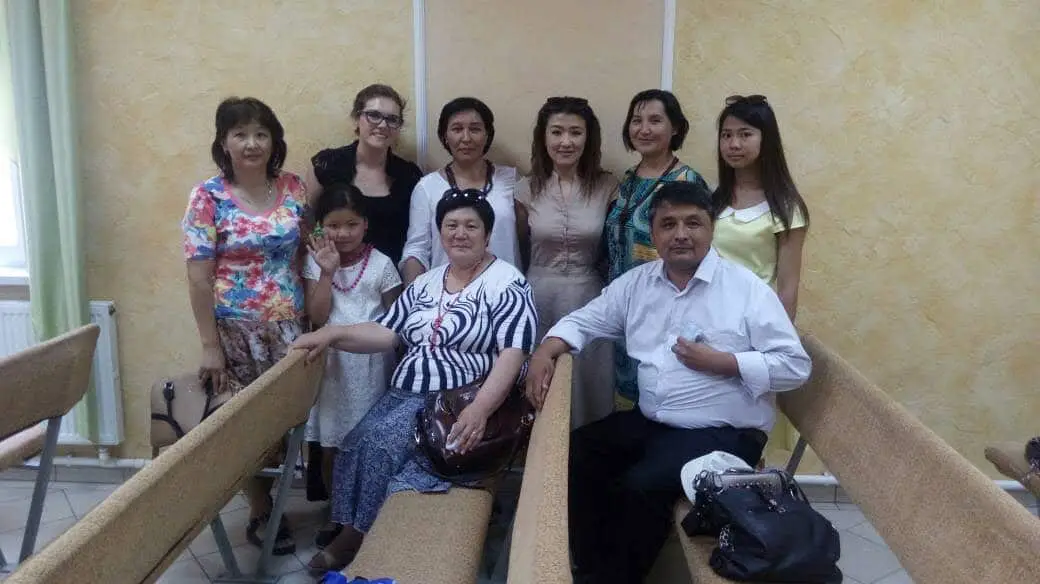What defines being Kyrgyz? Defining something as broad as a nationality or ethnicity is always complicated. I decided to get a view specifically from young Kyrgyz women and interviewed Bigemai, 27 and Aiza, 22 for their thoughts.
Bigemai grew up in Bishkek, the oldest of four siblings. She works professionally as a hairdresser and volunteers part time as a hairdresser at the Bishkek Jehovah’s Witnesses headquarters. She does not speak English fluently and thus her interview is translated from its original Russian.
Aiza was born in a village outside of Naryn, south of Bishkek. As a child, her family moved to Bishkek and she later learned English and studied in Indiana in the US for a year during high school as part of the FLEX Program. Aiza’s interview is transcripted directly from English. Aiza recently received a bachelor’s degree in Bishkek and plans to seek a Master’s degree in law somewhere in Europe. She plans to return to and work in Kyrgyzstan in the future, with the goal of helping change Kyrgyzstan for the better.
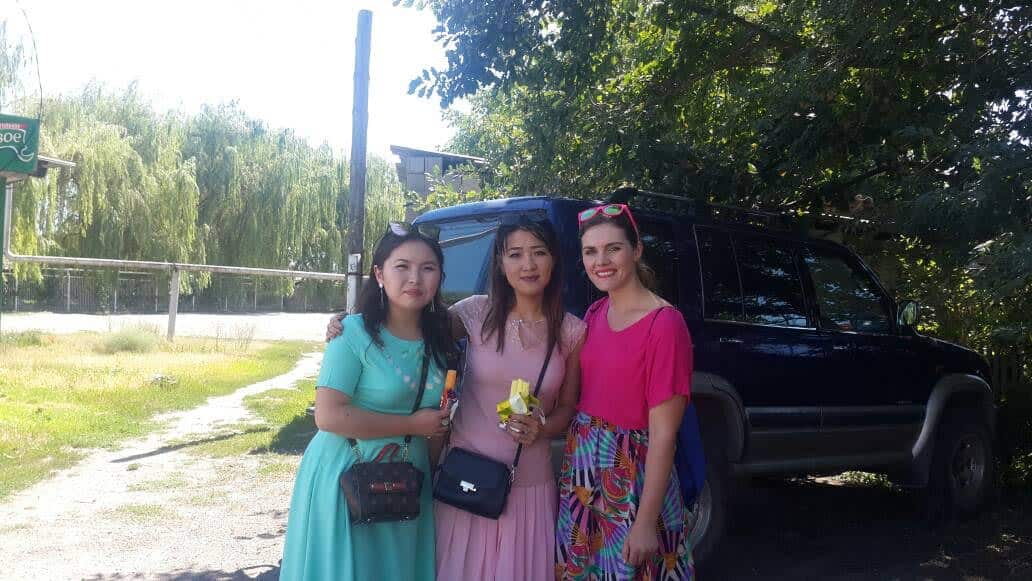
Interview with Bigemai:
What sort of traditions do Kyrgyz people have?
Bema: Whenever a baby is born, you call all of your family members. We start off by saying the Kyrgyz word, суйунчуу, which translates as “rejoicing” in English. Then they have to guess whether it’s a boy or girl. All of the relatives will give money to this new addition to the family.
As for other traditions, I think a big one is respect for our elders. For instance, we always stand up for older people on the marshrutka so they can take our spot. We always address them formally. It is also important that a young person greet an older person first. We must also listen to what our elders say and never argue with them, even if we know that they are wrong. We do this just to be polite. When we eat dinner as a group, the eldest have priority seating at the head of the table.
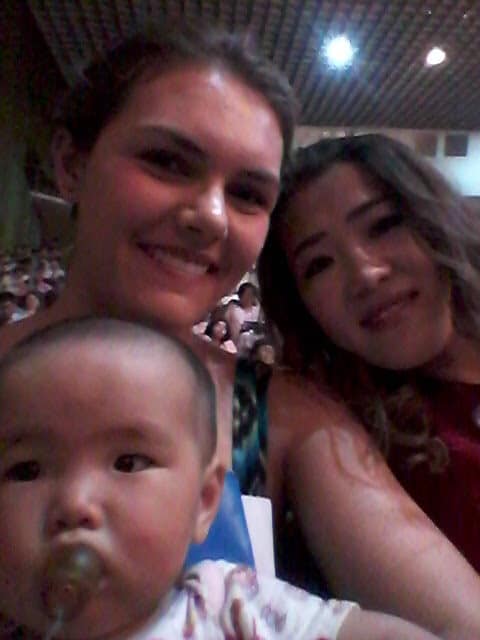
We also have our own funeral traditions. There is a three-day window where everyone in the family goes and visits the body, which is placed in a yurt, before burial. All of the woman must go in the yurt and publicly mourn the death of their relative. The body is also placed in different spots depending on who died. A man’s body will be placed on the left side of the hurt, and a woman or child on the right side. Prayers are not said until the deceased is buried. Women do not participate in the burial. They must stay in the yurt while the men bury the body in the cemetery.
I can also talk about weddings. In general, weddings are very big with a lot of guests and you get lots of presents. We also have a tradition where the groom comes and pretends to kidnap the bride on the day of the wedding. Weddings cost close to $10,000 at least and it’s the parents of the groom who pay for it. This is because the woman will go live with the groom’s husband often times. But because the parents are paying, they make all the decisions focused around wedding planning, such as location, food, etc. It is also the parents also pay for the couple’s wedding rings.
One thing I’ve noticed that whenever I am in Kyrgyzstan, people always want to feed me a lot of food. Why is that?
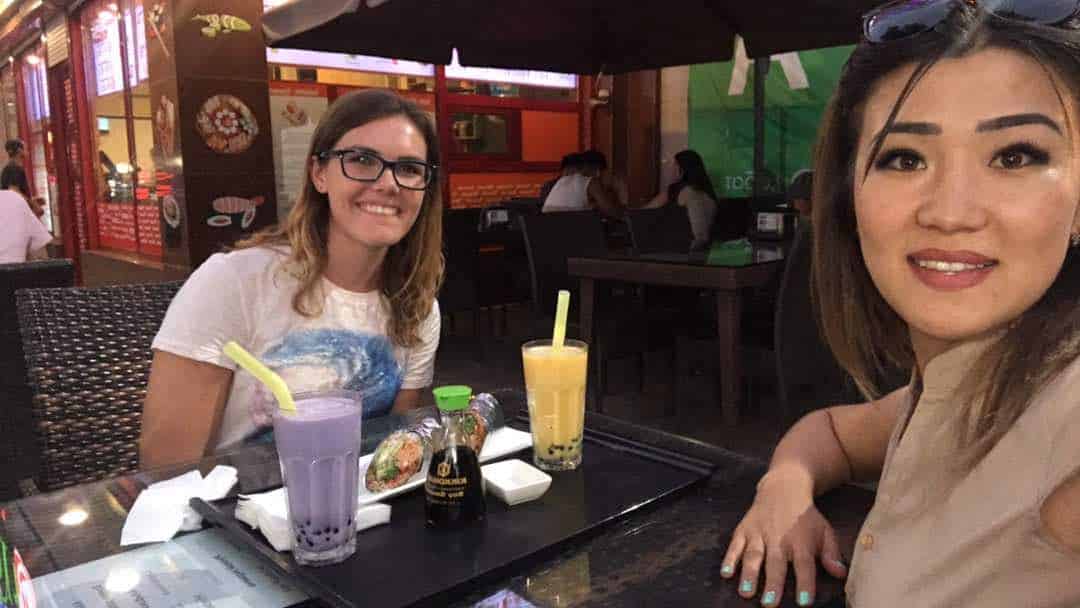
Bema: This is just part of our culture. Kyrgyz people are hospitable and the number one way they want to show this is by feeding guests. We really want to share our culture by showing others, especially foreigners, our national dishes. It’s considered very rude to not offer a guest anything. At an absolute minimum, a guest should be offered at least tea and bread whenever they enter a home, even if unexpectedly.
If foreigners come to Kyrgyzstan, what do you recommend that they see and do?
Bema: For foreign people, there is only one thing to see in Kyrgyzstan and its nature. I definitely recommend Supara in Bishkek. It’s an ethnocenter and depicts Kyrgyz culture well. I personally love Lake Issyk Kul. It’s a must see, especially in the summer. It’s so beautiful. There is also Archi Lek Lake and Ala Archa Park. Both are beautiful places of nature not too far from Bishkek. In general, our mountains and nature are so beautiful. If you want to rest and see natural beauty, I recommend that you go to the mountains in every region. I think that seeing and experiencing more authentic Kyrgyz culture and life by visiting remote regions and villages will really make your experience worthwhile.
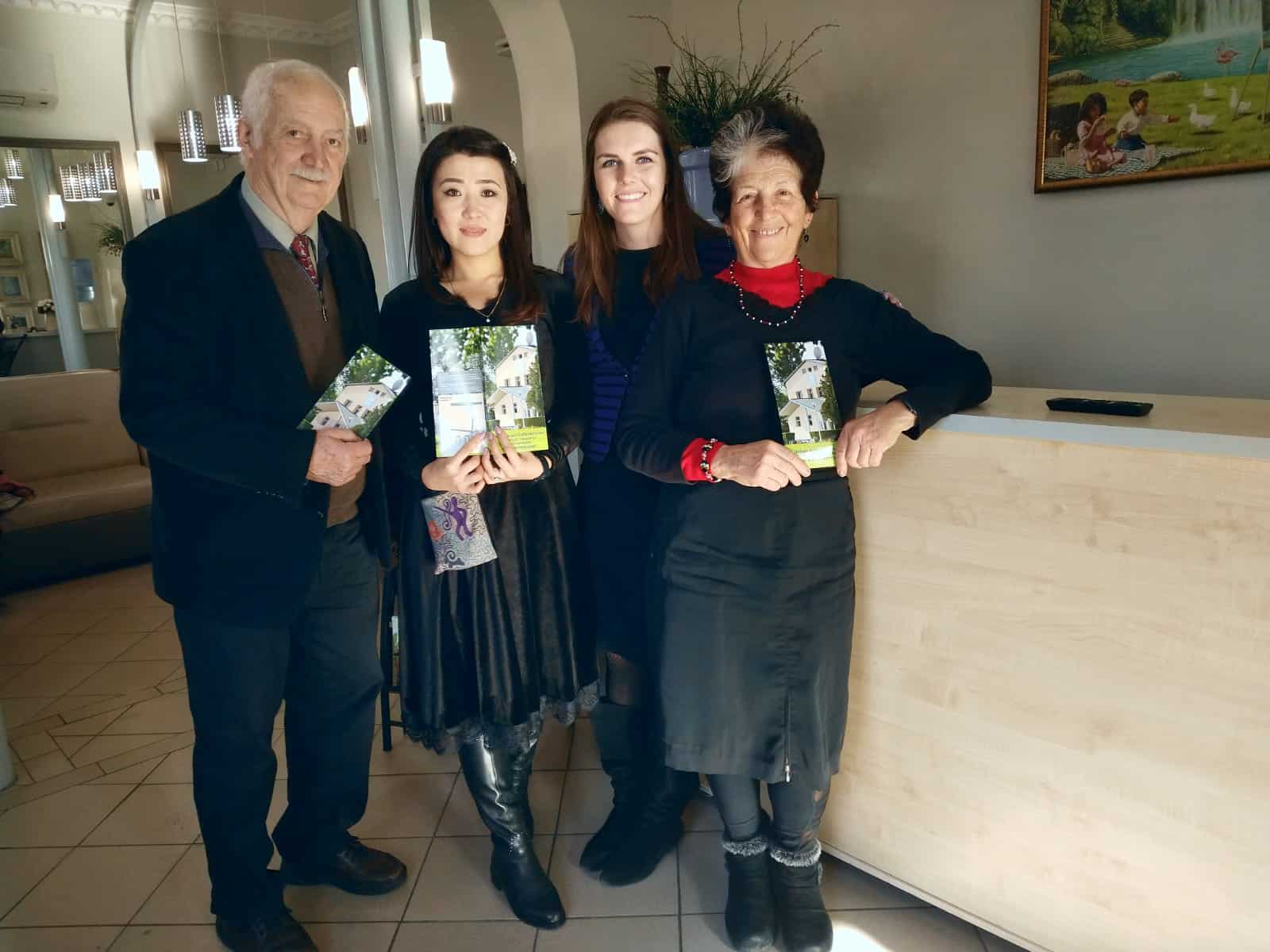
How do Kyrgyz differ from other Central Asians and from Russians living in Kyrgyzstan?
Bema: Kyrgyz people view Kazakh people as their relatives and don’t see a very big difference between themselves, but we do recognize that there are bigger cultural differences between us and other Central Asians. But as for the Russians who live in Kyrgyzstan and Kyrgyz themselves, I don’t think there’s too much of a difference. Russians who live in Kyrgyzstan are practically already Kyrgyz themselves! Their mentality is much more Soviet than it is Russian. I think local Kyrgyz and Russian people are very much alike. Both of us share a similar mentality and simple lifestyle.
What sort of traditions or cultural practices do Kyrgyz people have?
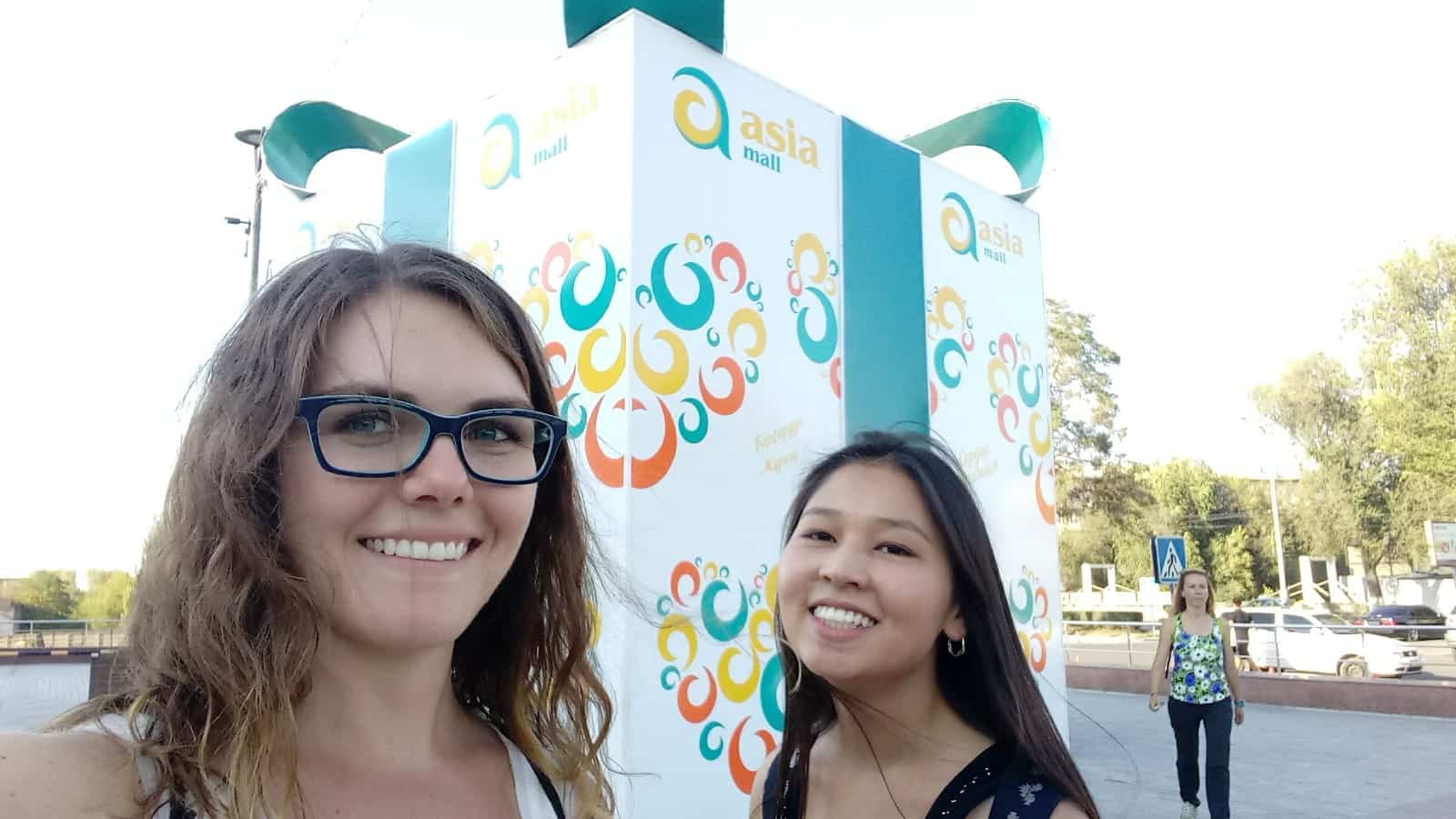
Aiza: The youngest son must stay home and take care of his parents, even if he doesn’t want to. I don’t necessarily like this practice. Having spent time in America, I know that once you’re 18, you can move out and live on your own if you want, but in Kyrgyzstan, you have no choice. It’s difficult having two families live together under the same roof, because Kyrgyz families are often big. For instance, my father has six siblings. Our family has seven kids. I suppose in a way this is nice because Kyrgyz families tend to be very close, and the bond between the youngest son and his parents is especially close. In America, it seemed a lot rarer that families saw each other. In Kyrgyzstan, all of my dad’s siblings get together every holiday and they’re always there for each other, whenever someone needs something. They’re at every funeral to pay their respects. They support each other and their entire families. I love when we get together and celebrate holidays together. Their children, who are my cousins, instead feel more like siblings. We’re all so close. Family relationships like these are common in Kyrgyzstan. Even though they live apart, they are still close.
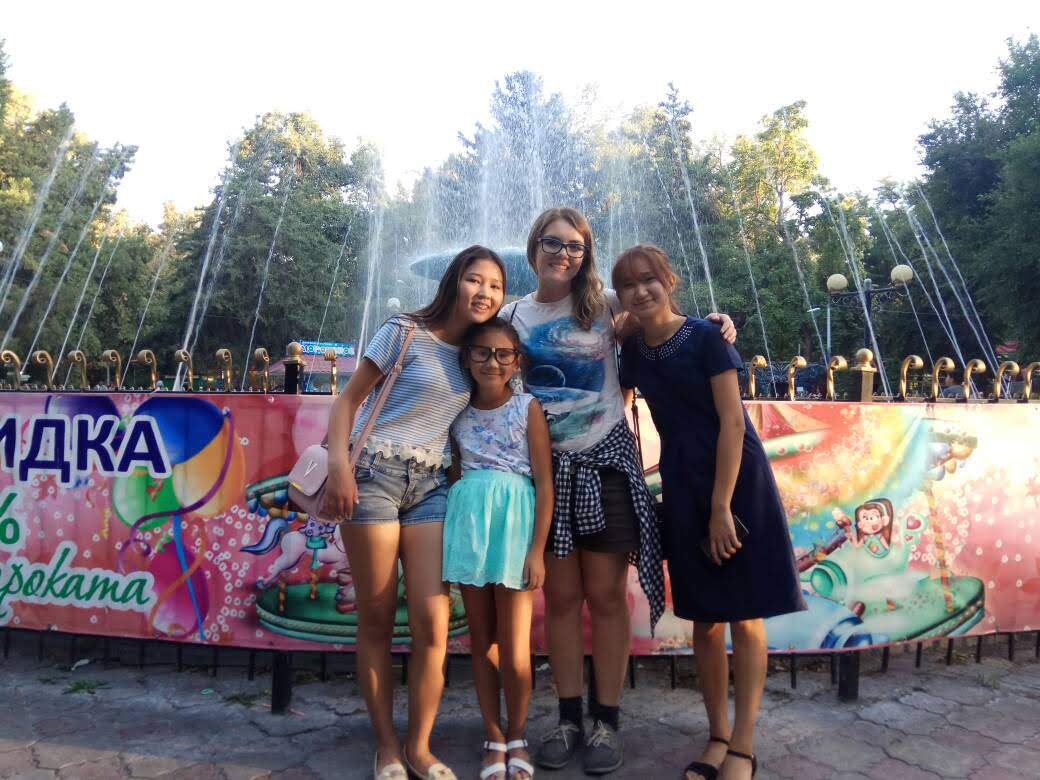
Do you think it’s important that Kyrgyz people continue the tradition of the youngest son living with his parents if Kyrgyz families are already so close?
Aiza: No. I don’t see the point. If anything, I think the oldest child should help the parents out more. I don’t think that anyone should have to stay with the parents if they don’t want to.
I’ve heard that the sons can usually decide for themselves who will live with the parents. It doesn’t always just have to be the youngest one. Is this true? And why is it usually the youngest one? Because he’ll live the longest?
Aiza: Actually, it’s usually the parents who will decide who lives with them. But the reason why it’s the youngest son is because usually the first son is expected to go out and get a job and an education.
What other traditions can you speak to, perhaps with regards to division of household labor?
Aiza: Now it’s actually become a little bit more modern, although we have traditionally had the mentality that only girls should cook and clean. For instance, in our family, my dad doesn’t wash his own dishes or cook for himself. I do it for him or my mom does. Honestly, it’s just a stupid norm left over from the older generation – that men shouldn’t do anything. But I don’t think it’s right. If a man wants to eat, he should cook for himself and clean up after himself.
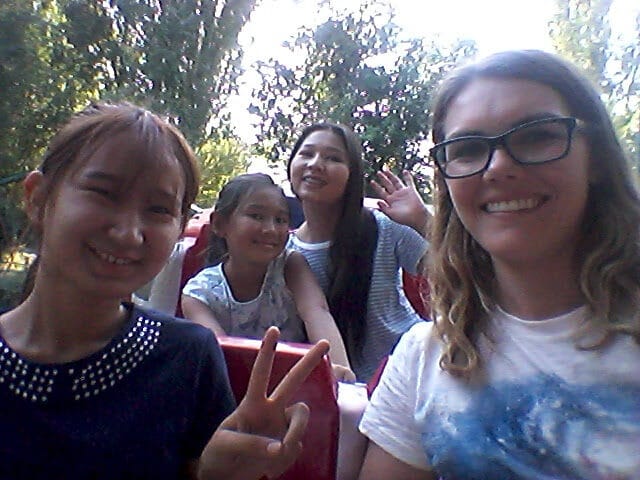
What about Kyrgyz wedding traditions?
Aiza: While I don’t like to admit this, Kyrgyz people spend an exorbitant amount on their weddings. When a couple gets married, the parents are responsible for planning the wedding, not the couples themselves. The reason this is a problem is because they usually decide to invite up to 500 people, such as the parents’ own friends and extended relatives. And the reason why this is a problem is because sometimes the couples themselves don’t even know the guests in attendance. The only reason people do this is to show off or pretend they have a lot money, but I think it’s a waste. It’s a waste of resources. Sure, it’s nice when your own friends and relatives attend your wedding, but to have 500 people at one wedding, it’s just too many people. I attended one of my friend’s weddings recently and that’s how many were in attendance. It was a beautiful wedding, but they didn’t know a lot of their attendees personally. I think that people could spend a lot less money and have just as nice of a wedding, and have it be focused more on the couple, rather than their parents.
Do you think that wedding traditions are something that is changing and becoming more modern, too?
Aiza: People still do big weddings, but the new generation has different priorities. For instance, I have some friends personally who prefer to spend money on traveling rather than the wedding itself. Maybe they prefer to have a nice honeymoon. I agree that this is better. Honeymoons have been something that couples traditionally haven’t really been able to afford due to the large cost of their weddings. Sometimes friends and relatives will gift the couple a honeymoon, or give them money towards one, but this isn’t commonplace.
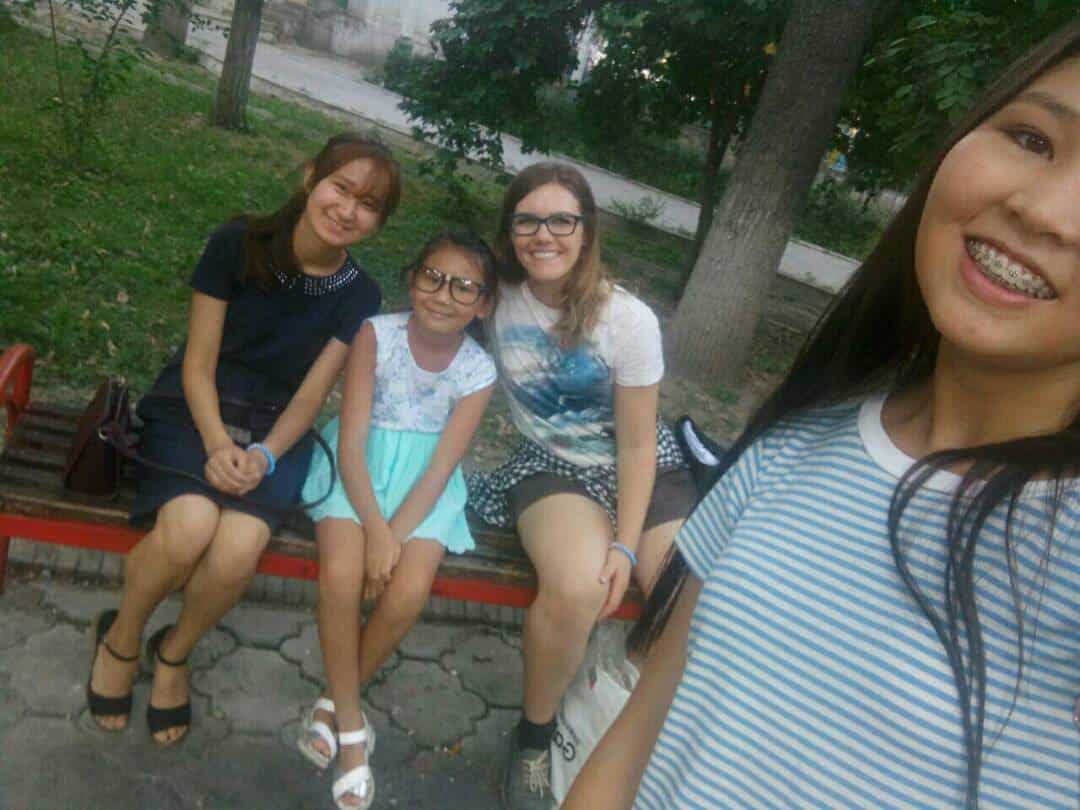
Are there any other traditions you can think of?
Aiza: Although this one is becoming less popular for sure, there are still some Kyrgyz people who want to arrange a marriage between their own son or daughter to that of their friends. This especially happens if their son or daughter is between the age of 25 and 30. A lot of Kyrgyz people still think that people in this age range need to get married right away if they aren’t already. Sometimes parents think they have found the right spouse for their children, but the children don’t want to meet each other. They may be forced to meet anyway. Some parents have really strong opinions about who specifically they want their children to marry. Like I said, this happens a lot less now, but it does still happen.
What does being Kyrgyz mean to you? Explain your identity as a Kyrgyz people.
Aiza: I am very proud of my heritage. Because of the way I was raised, it has transformed me into the person I am today. I grew up in a village, Kochkor in the Naryn region. I feel that I was raised not only by my parents, but by everyone in the village, because we all knew each other. One village is like one big family. Everyone knew me personally and because of that, they were able to give me a lot of good advice. This is why I like Kyrgyz people. They’re always open to helping each other, whether you are their relative, neighbor or not.
A lot of Kyrgyz people are Muslim, which I also identity as. But the thing I like about Islam in Kyrgyzstan is that it feels very balanced. People are religious, but not too much.
I also like being Kyrgyz because I am proud of Kyrgyz people. In history, Kyrgyz people lived through difficult times, especially before becoming more developed, but they never gave up and always embraced change. I must admit that sometimes Kyrgyz people are lazy, and because of that, sometimes some of them are not as open to change. But my generation is more modern and less traditional. There is hope that Kyrgyzstan will become more developed.
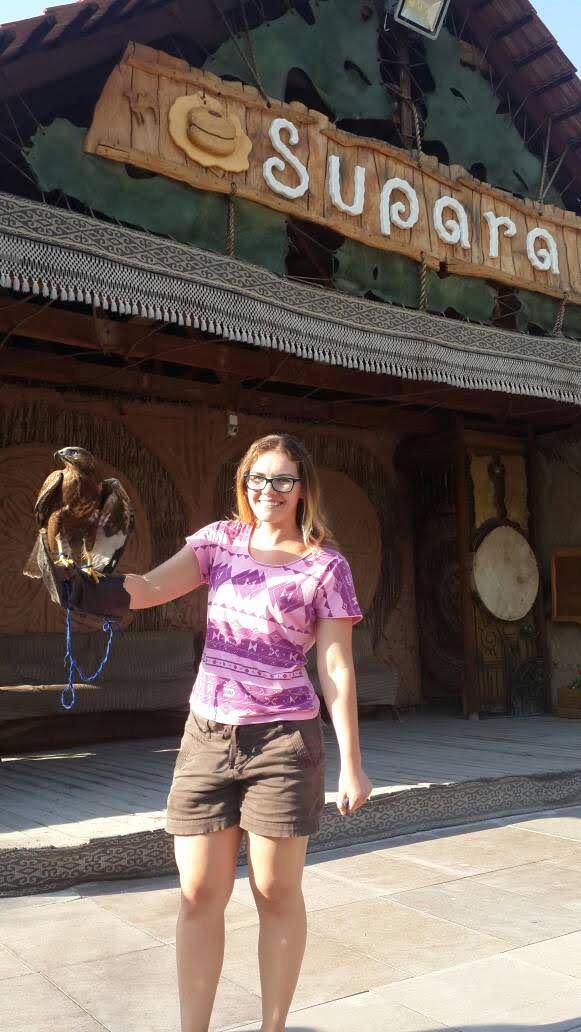
What are your thoughts on job prospects domestically vs. leaving for another job market? Is it necessary to go abroad to become successful?
I want to work as a police officer and affect positive change. People are telling me that the government is too corrupt and I can’t change it. I agree that the government is corrupt and understand that it is hard to change right now, but with the new generation entering the ranks, the change can begin with us. When I start working in government, I hope more young people will join me. I know they will eventually and I know we will change the system together.
When I chose my profession, I decided that I needed to stay in Kyrgyzstan and I wanted to work for the Kyrgyz government. Many people I knew didn’t like this idea. They know that I liked freedom, that I had lived in America, and I wasn’t the type of person who should stay in Kyrgyzstan and work. Even my parents didn’t want me to stay in Kyrgyzstan and work. They wanted me to go abroad and work. Although this had been my dream for a while, while I lived in America, I came to the realization that I wanted to stay in Kyrgyzstan long term. I saw how developed America was in comparison to Kyrgyzstan and helping Kyrgyzstan become more developed became an import goal of mine. Maybe I’ll live in another country for one or two years, save some money, and come back to Kyrgyzstan, but I know that long term it would be difficult for me to deal with homesickness. I know that in Kyrgyzstan, it will be hard for me to make a lot of money here. Life is hard in Kyrgyzstan. It’s a small country and people are not so rich. It will be hard to have a perfect life here. I like traveling and it is my dream to travel all over the world, but it will be harder for me to achieve that goal if I stay in Kyrgyzstan for work. That’s why I want to study in Europe for my master’s, that way I’ll have good skills. I would have opportunities to work for a few years, save money, and then come back to Kyrgyzstan, or I could even work online and make decent money that way.
Your story reminds me of the New York plot line in the popular Kyrgyz movie, Salaam. Did that move inspire you?
Aiza: Yes, actually. It was after seeing that movie, that I decided that I wanted to go to America. I prayed about it every day actually.
Do you feel that there is a difference between Russians and Kyrgyz who live in Kyrgyzstan?
Aiza: Yes. They are very different. Russian people have their own culture and traditions. For example, as a Kyrgyz girl, if I do something wrong – let’s say in this instance, I am on public transportation wearing a really short skirt, a babushka will yell at me. But if it’s a Russian girl, it’s okay, because it’s okay in their culture. Russians are freer and more modern than Kyrgyz people. Their lifestyle and standards are different. Russian people don’t spend a lot of money on weddings and other holidays the same way Kyrgyz people do. They don’t have as many relatives and large networks of friends as Kyrgyz people.
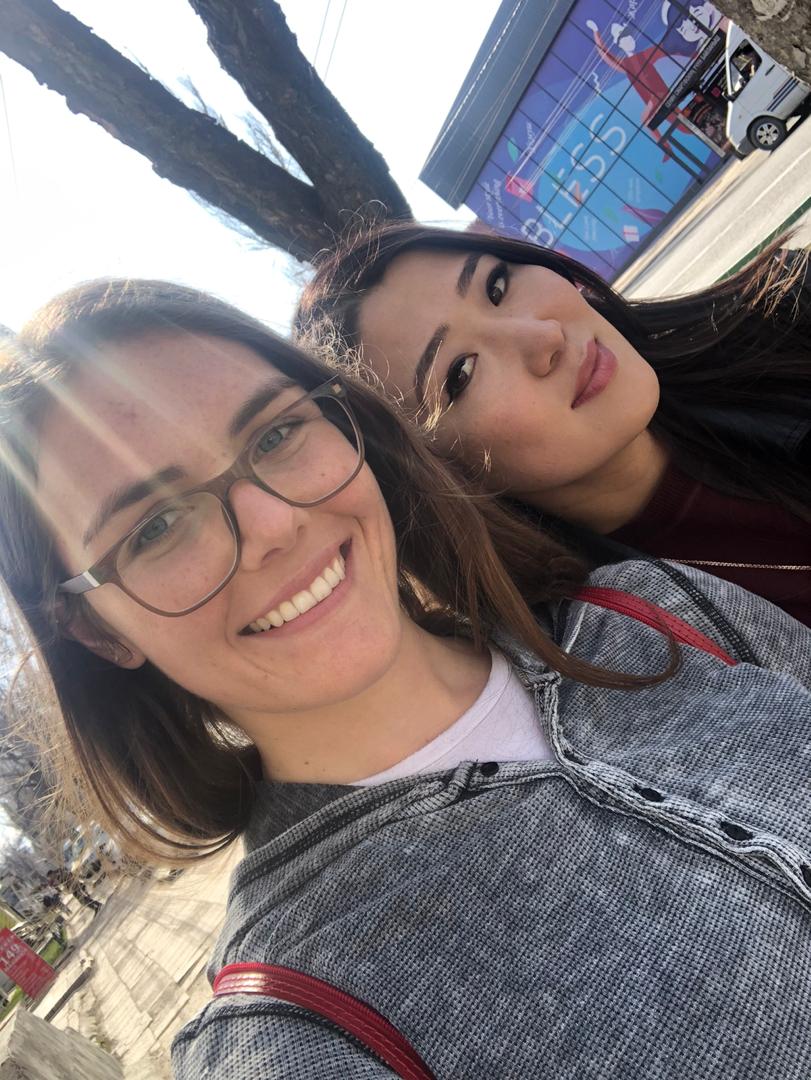
Is it natural for Russian and Kyrgyz people to be friends?
Aiza: I would say Russian people are mostly friends with each other, but there is a good amount who also have Kyrgyz friends. But it’s normal for Russian people and Kyrgyz people to be friends. No one sees a problem with this. Russian people just don’t always like the way Kyrgyz people do things. For instance, Kyrgyz people can be very into their own culture and traditions and do things “Kyrgyz style.” Russian people can’t always relate to this. They don’t celebrate Kyrgyz people’s holidays. Instead they have Easter. But unlike in America, I don’t see people celebrate Christmas in Kyrgyzstan.
What differentiates Kyrgyz people from Kazakh people and from other Central Asians?
Aiza: There are a lot of similarities, especially with regards to culture and traditions. But our histories are different, even though they are intertwined. But Uzbek and Taijiks are much more different from us than Kazakhs are. In fact, I don’t even know anything about their traditions or cultures because they’re so different.
Can you personally understand other Central Asian languages?
Aiza: I can understand 40-50% of Kazakh when I hear it, but that’s about it.
When do you use Kyrgyz versus Russian?
Aiza: It depends on who I’m talking to. In my family, my parents always talk to each other in Kyrgyz, so I always talk to them in Kyrgyz. But it also depends on who you’re talking to and where you are. Usually in Bishkek, I speak with all of my friends in Russian, because it’s more commonplace.

